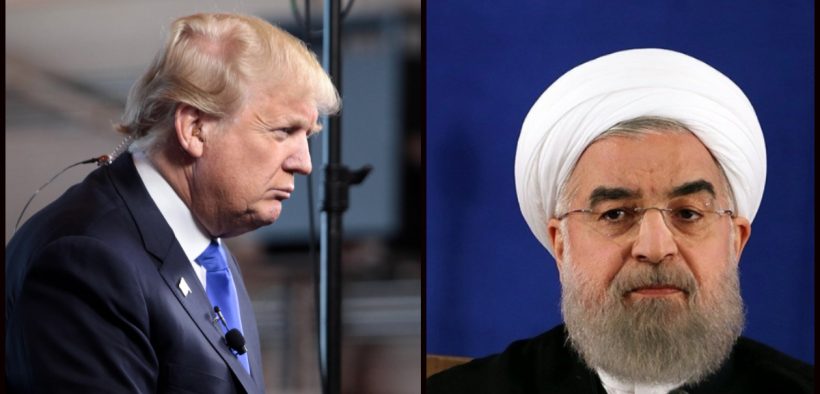Emergency Meeting Called to Save Iran Nuclear Deal

“The ball is in Europe’s court. Are Paris, London and Berlin going to again waste a chance under the influence of (U.S. President Donald) Trump, or use the remaining opportunity to fulfill their promises and act on their commitments under the (nuclear deal)?”
On Sunday, representatives from Russia, China, Germany, France, and the U.K. held an emergency meeting with Iran officials in the Austrian capital of Vienna to salvage the 2015 Iran nuclear accord also known as the Joint Comprehensive Plan of Action (JCOPOA).
Iran’s senior negotiator, Abbas Araqchi, hailed the meeting as “constructive,” but stressed that Tehran would continue to scale down its commitment to the nuclear deal unless the world powers found ways to help protect Tehran’s interests from sanctions imposed by the U.S.
“The atmosphere was constructive. Discussions were good. I cannot say that we resolved everything, I can say there are lots of commitments,” Araqchi, Iran’s Foreign Minister Deputy told reporters after the meeting in Vienna.
JCPOA Threatens to Fall Apart
The United States, under President Donald Trump, withdrew from the agreement in May 2018. Trump argued that the pact was not sufficient enough to halt Iran’s nuclear ambitions, despite Iran’s compliance with the agreement as confirmed and monitored by the International Atomic Energy Agency.
Following the U.S.’ withdrawal, the U.S. reinstated economic sanctions on Iran to which Iran responded by stating it would exceed the uranium enrichment levels set in the JCPOA if the remaining deal’s signatories did not find a way to help Iran avoid the impact of U.S. sanctions. Following through on its promise, on July 3, Iranian President Hassan Rouhani announced his country would gradually leave the JCPOA and begin enriching uranium to 4.5% – exceeding the 3.67% limit allowed in the agreement. Weapons-grade uranium must be enriched to 80% or more.
In recent weeks, tensions have again escalated between Iran and the U.S. after a series of oil tanker attacks and seizures in the Gulf. Ties between Iran and Europe also turned sour after the U.K. seized an Iranian tanker carrying 2 million barrels of crude oil off Gibraltar in early July, claiming the tanker violated E.U. sanctions on Syria.
Iran retaliated by seizing the Stena Bulk, a British tanker in Omani waters according to British officials. The seizure prompted outgoing U.K. Prime Minister Theresa May to call the seizure “unacceptable and highly escalatory.”
Iran Deal Signatories Oppose US Sanctions
According to Reuters, a Chinese envoy at the Vienna meeting said that all the remaining JCPOA signatories still hoped to preserve the deal and were against the Trump administration’s reinstatement of sanctions on Iran.
“All sides have expressed their commitment to safeguard the JCPOA and to continue to implement the JCPOA in a balanced manner.
“All sides have expressed their strong opposition against the U.S. unilateral imposition of sanctions,” said Fu Cong, director-general of the Department of Arms Control of the Chinese Foreign Ministry.
The Russian ambassador in Vienna, Mikhail Ulyanov, added in a tweet, “It is obvious that US sanctions negatively affect implementation of the ‘nuclear deal.’ However all participants are fully committed to it.”
Both Cong and Iranian negotiator Araqchi said there was an agreement to arrange a higher-level meeting involving foreign ministers soon. The date of the upcoming ministerial meeting was not announced.
Iran To Restart Heavy Water Reactor
While envoys were meeting to keep the accord alive, Iran’s Atomic Energy Chief Ali Akbar Salehi stated that Tehran would reduce its commitment to the JCPOA by re-activating its heavy water nuclear reactor in the city of Arak.
Heavy water is a chemical substance utilized in reactors to produce plutonium, a type of fuel used in nuclear warheads.
Salehi also announced that Iran had enriched a total of 24,000 kilograms of uranium, exceeding the 300 kilogram stockpile limit set by the JCPOA. Under the JCPOA Iran was allowed to enrich uranium but not build up its own stockpile of enriched uranium.
Europe May Be JCPOA’s Only Hope
Iran claims the fate of the JCPOA is in Europe’s hands and will be determined by whether they are willing to compensate Iran for the impact of Washington’s sanctions.
“The ball is in Europe’s court. Are Paris, London and Berlin going to again waste a chance under the influence of (U.S. President Donald) Trump, or use the remaining opportunity to fulfill their promises and act on their commitments under the (nuclear deal)?” Iranian state TV said in late June.
Meanwhile, as outlined by Newsweek, multiple former Obama officials who worked on the JCPOA have said that the problems lie in Trump’s hawkish aides such as National Security Adviser John Bolton and Secretary of State Mike Pompeo who have intensified tensions with Tehran.
Former Undersecretary of State for Political Affairs Wendy Sherman, who was a U.S. lead negotiator to the JCPOA and now serves as director of Harvard Kennedy School’s Center for Public Leadership, said Bolton and Pompeo are “pushing the president to take military action” during a press call.
“Trump is on a collision course with himself. He is on a track that he believes will lead to negotiations. I suspect most of his team know that it won’t, at least not the negotiations that he wants and it could a trigger the military confrontation that he definitely doesn’t want, but that he may not be able to avoid,” said International Crisis Group President and CEO Robert Malley in the same press call. Malley was also once a former lead negotiator on the Iran nuclear deal during the Obama administration.
As long as Trump snubs his pro-war approaches initiated by his inner circle, a dialogue to preserve the deal is still possible.














When people like Trump and Bolton and Pompeo sit in the seats of power, I’d say all is lost — for everyone. (Hillary would have been a different stripe of disaster.)